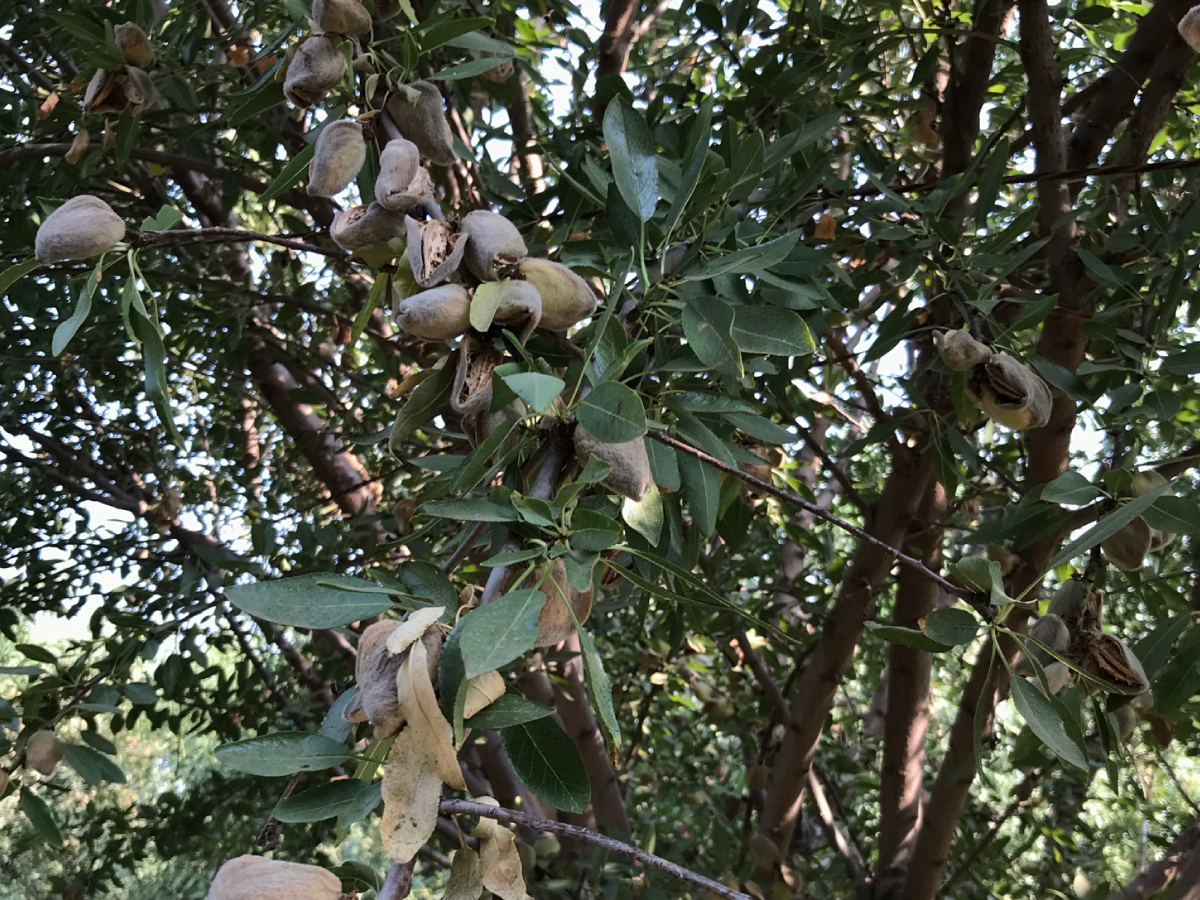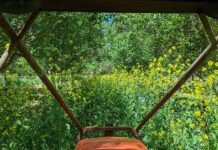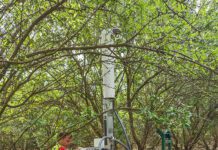
Management of irrigation, including regulated deficit irrigation, is a proven option for managing hull rot in almond trees, according to UCCE experts and industry professionals.
Hull rot nicknamed the “good grower’s disease,” affects trees that are well irrigated and fertilized with nitrogen. “This is because the plant tissue itself is more vulnerable to infection,” said UCCE Orchard Systems Advisor in Madera and Merced counties Phoebe Gordon.
In a UCCE San Joaquin Valley Trees and Vines post, Gordon said to use regulated deficit irrigation (RDI) at hull split to induce moderate water stress on the trees. She recommends reducing irrigations by 10% to 20% in the first two weeks of hull split and resuming full irrigation afterward as to not stress the trees postharvest, noting that a decrease in next year’s fruit load can occur.
“If you have an orchard that is severely affected by hull rot, the small yield reduction via smaller kernels may be far outweighed by the avoidance of the loss of fruiting wood,” she said.
According to Wilbur-Ellis Agribusiness Technical Nutrition Agronomist Matt Comrey, growers can’t deficit irrigate without a good understanding of current water demand and how much water is being applied (application rate).
“Knowing those two items are critical in any irrigation schedule,” he said.
Correctly assessing current water demand is best done with a pressure chamber to measure plant stress, Gordon said. “Monitor stress with a pressure chamber; you should aim to keep the trees between -14 and -16 bars,” she said. “I’ve talked to a grower who let their trees get a little too stressed during this period and suffered a lot of sticktights, so again, induce RDI without using the pressure chamber at your own risk!”
Gordon agreed that monitoring plant stress without the use of a pressure chamber is risky. Soil moisture sensors often don’t provide accurate representations of an orchard due to variability in soil and water holding capacities and evapotranspiration is only an estimation of how much water trees have lost.
“I’ve heard performing reduced deficit irrigation without a pressure chamber as playing Russian roulette; you could get lucky and get it right, but things could also go very, very wrong,” she said.
















